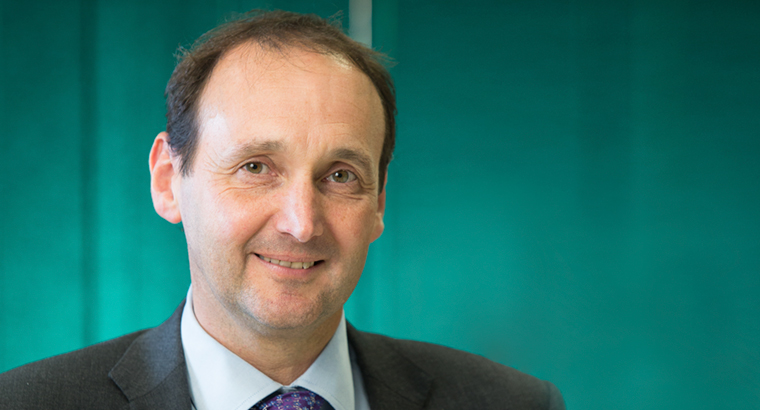Feature
Victoria leads in international study on bowel cancer care
But cancer expert Professor Jon Emery cautions against complacency.
 Victoria was a world leader in some measures of bowel cancer diagnosis and time to treatment – but there is still room for improvement.
Victoria was a world leader in some measures of bowel cancer diagnosis and time to treatment – but there is still room for improvement.
New research has identified Victoria as a world-leader in bowel cancer diagnosis and treatment times.
The research, which is part of the International Cancer Benchmarking Partnership (ICBP), was published in the BMJ Open and measures diagnostic routes for patients with colorectal cancer across 10 international jurisdictions and six countries, including Australia, Canada, Denmark, Norway, Sweden and the United Kingdom.
Victoria came second only to Denmark in some key measures, including the median period between the time a patient first notices a symptom and begins treatment (77 days), and the time a patient presents to a healthcare professional to the time they receive a diagnosis of bowel cancer (28 days to Denmark’s 27).
According to Professor Jon Emery, GP and Herman Professor of Primary Care Cancer Research at the University of Melbourne and Western Health, while these particular results are great news for bowel cancer treatment and diagnosis in Victoria, they do not tell the entire story.
‘Once you’ve been diagnosed with a cancer in Victoria, the time to get treatment started was very short,’ he told newsGP. ‘But there were some other bits further upstream leading to the diagnosis where there was still room for improvement.
‘For example, the primary care interval – so that’s the time from when a person first presents to their GP to the time that they are then referred. The median time for that is only 12 days, but of the top 10% of those who had the longest interval, Victoria had one of the longest intervals compared to other jurisdictions.
‘So there’s something going on there still, and there’s the potential for some improvement in recognising people with symptoms suggestive of bowel cancer and referring them on.’
The study also found that in most jurisdictions, including Victoria, 10% of people had a total interval of 11–12 months or more from noticing symptoms to starting treatment.
While this ICBP study collects and reports numbers, some of its earlier research, conducted with Cancer Council Australia and involving Professor Emery, may offer some explanation behind patients who experienced longer intervals – particularly those who live in rural areas.
‘We wanted to try and understand why it is that rural patients have slightly poorer outcomes for bowel cancer compared to metropolitan patients,’ Professor Emery said.
‘We think part of it relates to another aspect of the interval, which is the term from when a GP refers a patient to the time they get a colonoscopy and make the diagnosis.
‘Rural patients in Victoria wait a significantly longer time to get their colonoscopy than metropolitan patients, and that may be part of the explanation why they have poorer outcomes.’

Professor Jon Emery believes it is important to carefully triage patients for colonoscopy.
Professor Emery believes the ICBP research is helpful in terms of identifying areas where improvement is needed, and points to significant work being done within Australia to help overcome these problems. One of these is related to better triaging patient need for colonoscopy.
‘There are probably a fair number of people on waiting lists for colonoscopy who may not really need it at all,’ he said.
‘Demand can be managed a bit more effectively by ensuring there is good information in the referral letter from the GP, so then the endoscopy unit can more accurately triage those colonoscopies and pick the patients who more urgently need them based on the patterns of symptoms and test results.
‘There are national triage guidelines for colonoscopy that were published at the end of last year by Cancer Council and endorsed by the NHMRC [National Health and Medical Research Council].’
Professor Emery also hopes that the further implementation of the national Optimal Care Pathways Program will help to improve timelines for diagnosis and treatment.
‘The program is trying to ensure much clearer pathways for patients with suspected cancer, so that GPs know what the best diagnostic referral routes are, in an attempt to reduce variation in times to diagnosis,’ he explained.
‘Even though Australia has quite good survival rates, there’s quite large variation by where you live and your socioeconomic status. That may be partly due to more complex cases, or longer waiting times.
‘So the Optimal Care Pathways program is important to help GPs to select those patients who require earlier investigation of symptoms that might be due to cancer, then having much clearer pathways so they can get in to have their specialist diagnostic tests far more quickly, and if they are diagnosed with cancer, to have their treatment commence sooner.’
However, on the whole, Professor Emery believes Victoria should take away from the study what it is doing well in the area of colorectal cancer diagnosis and treatment, as well as what it can improve.
‘The big-picture story is that Victoria overall was doing very well, and that’s partly because the treatment interval was relatively short, so once you’ve got your diagnosis and get into the system, you move very quickly,’ he said.
‘But there’s still some suggestion of room for improvement around a small cohort of patients being referred a bit later.
‘Also, there are continuing problems with access to colonoscopy, particularly in public hospitals with long waiting times, and that seems to be an even bigger issue for rural compared to metropolitan patients.’
bowel cancer Cancer Council colorectal cancer International Cancer Benchmarking Partnership Victoria
newsGP weekly poll
Which of the following areas are you more likely to discuss during a routine consultation?